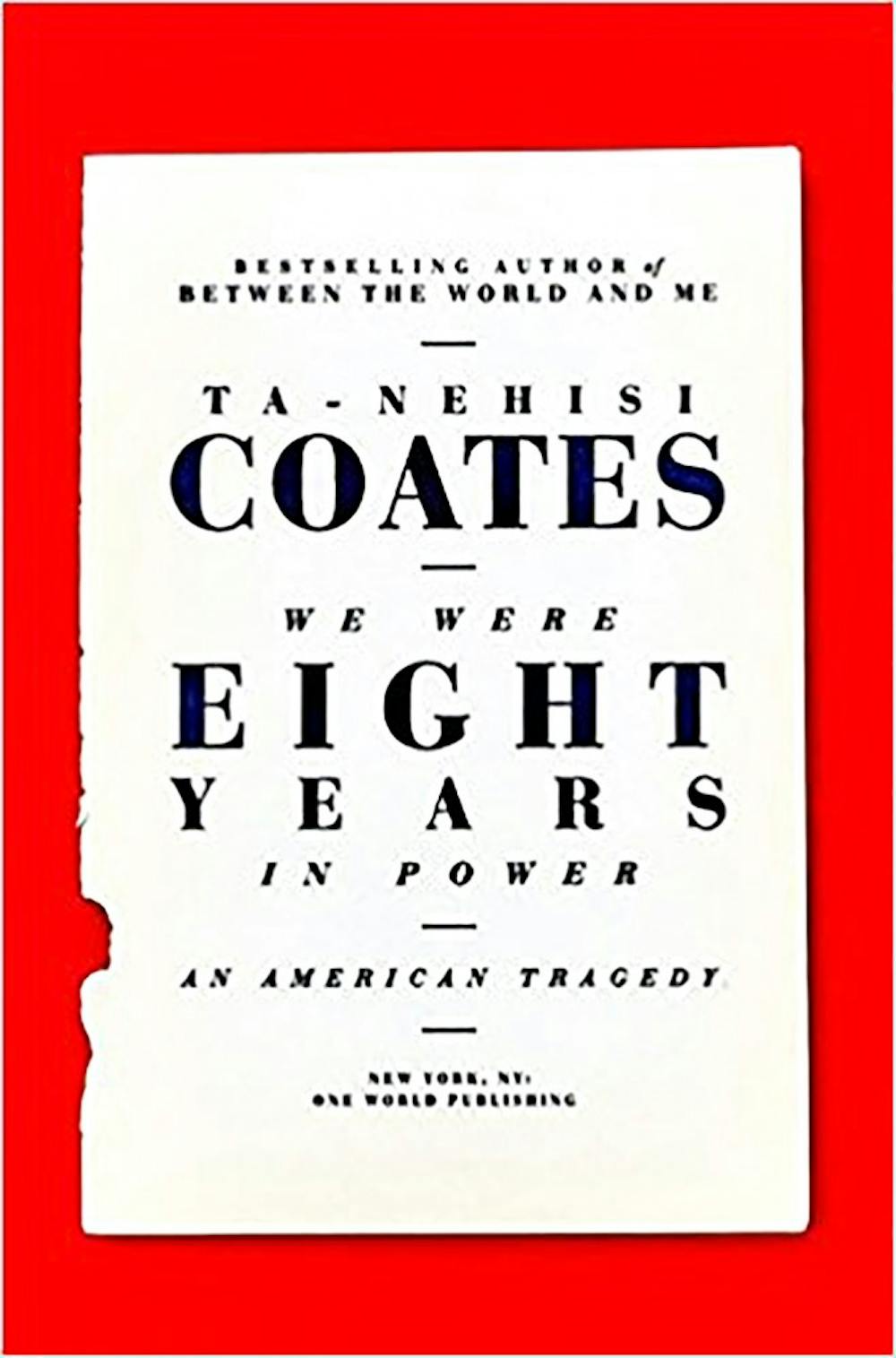Book: “We Were Eight Years in Power: An American Tragedy”
Author: Ta-Nehisi Coates
Publisher: One World
Release Date: Oct. 3
Grade: A-
Author Ta-Nehisi Coates draws parallels between the end of the Reconstruction era and the Obama administration right off the bat.
“We Were Eight Years in Power: An American Tragedy” begins when Coates quotes South Carolina congressman Thomas Miller and his 1895 address to S.C.’s constitutional convention.
“We were eight years in power. ... We had reconstructed the State and placed it upon the road to prosperity,” Miller said.
The reason for the conclusion to an economic rise for black people, Coates explains, is the way Reconstruction “undermined white supremacy.” The author quotes W.E.B. Du Bois and his understanding that “good Negro government” was fearsome during Reconstruction, comparable to the fear of Obama’s presidency leading to the election of Donald J. Trump.
The book’s heavy introduction leads to a 360-plus page retrospect of the Obama presidency in the form of eight essays. Each essay, all of which were initially published in The Atlantic, examines not just issues related to race and politics but also Coates’ career during the time.
The first essay, “This Is How We Lost To The White Man,” is admittedly a failure for Coates but he begins the book with it anyways.
The essay centers around Bill Cosby and his views on black America as expressed in his infamous “Pound Cake” speech. In his address, Cosby mocks the names of black youth and preaches self-reliance.
Coates goes on to deconstruct Cosby’s notion of “black conservatism,” particularly how it “flattens history and smooths over the wrinkles that have characterized black America since its inception.”
In his analysis – which doesn’t go all out in denouncing Cosby’s speech – Coates seems to fail in dismantling it, admitting that he “fell prey” to the speech’s contents when writing his essay.
“American Girl,” the essay that follows, the author profiles Michelle Obama and what he calls her “Americanness.” Coates examines her early life: a speech she made at a Wisconsin rally and how it’s relative to her understanding of race.
“She was merely expressing the hope [in the speech] that the world could be as it was in South Shore,” Coates writes regarding where Michelle grew up. He explains that she holds “blackness as more than the losing end of racism” and that wishing for a world where race is more than the “other” isn’t necessarily a bad thing.
Following “American Girl,” the books pushes to modern understandings of race and politics in America. In a note prior to “Why Do So Few Blacks Study The Civil War?” the author explains how America’s problematic past and present crept up on him. It did so after Obama acknowledged the history of racism in law enforcement.
“What I sensed was a country trying to skip out on a bill, trying to stave off a terrible accounting,” Coates writes of the “post-racial” American aesthetic created after the Civil War.
The note precedes an essay unpacking the war that divided a country, which Coates explains is a story for white people where “blacks feature strictly as stock characters and props.” He asks for a burden to be lifted for black people, one where the “Civil War” is considered to be their own.
The essay reflects on current discussions surrounding archiving the Confederacy and how it should be portrayed, whether through statues or other means.
Coates makes the claim that America under Obama is Malcolm X’s to take ownership of. The author considers the civil rights leader’s fight in “The Legacy of Malcolm X” and references his presence in the victory of Barack Obama.
“As surely as 2008 was made possible by black people’s long fight to be publicly American, it was also made possible by those same Americans’ long fight to be publicly black,” Coates writes about Malcolm X’s pride in his race.
It’s not until the second half of the collection that Coates truly shines as an intellectual, perhaps due to his development as an author in Obama’s America.
In essays like “Fear of a Black President” and “The Black Family in the Age of Mass Incarceration,” Coates touches on the “price of a black president” and the drastic effects which can come as a result of a loved one being locked behind bars.
The star piece of the book and perhaps the author’s career, “The Case For Reparations,” is also featured in “We Were Eight Years In Power.” Coates calls the reactions to his “critique of respectability politics” disturbing in the essay’s preceding notes but also something he’s proud to have achieved with The Atlantic.
The book’s epilogue is where Coates as a writer is most powerful.
In “The First White President,” the author makes the argument that whiteness for Trump is “neither notional nor symbolic but is the very core of his power.”
“But whereas his forebears carried whiteness like an ancestral talisman, Trump cracked the glowing amulet open, releasing its eldritch energies,” Coates explains.
For Coates and others, there is nothing surprising about Trump’s election and it’s certainly not the “end of history.” Yet the author finds hope for the resistance against the various ‘–isms’ that Trump conjures up.
The book concludes on a note which escapes the feeling fueled by the election of Obama, instead a contrasting feeling is offered. Through his retrospectives, Coates fuses his views together prominently and his notes provide a deeper insight to his already transformative powers at The Atlantic.
Benjamin Blanchet is the senior arts editor and can be reached at benjamin.blanchet@ubspectrum.com.

Benjamin Blanchet is the senior engagement editor for The Spectrum. His words have been seen in The Buffalo News (Gusto) and The Sun newspapers of Western New York. Loves cryptoquip and double-doubles.





